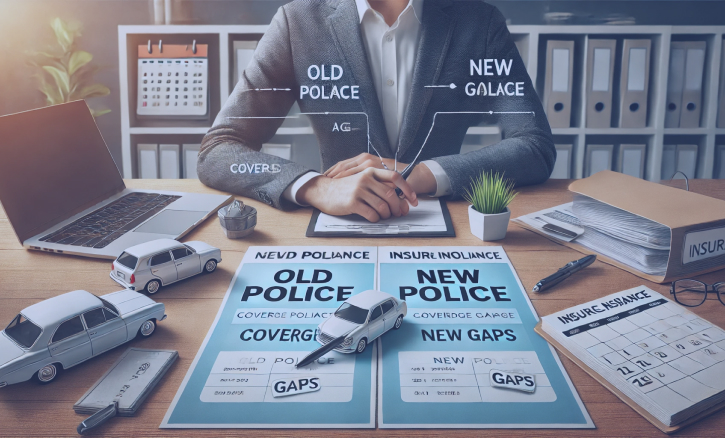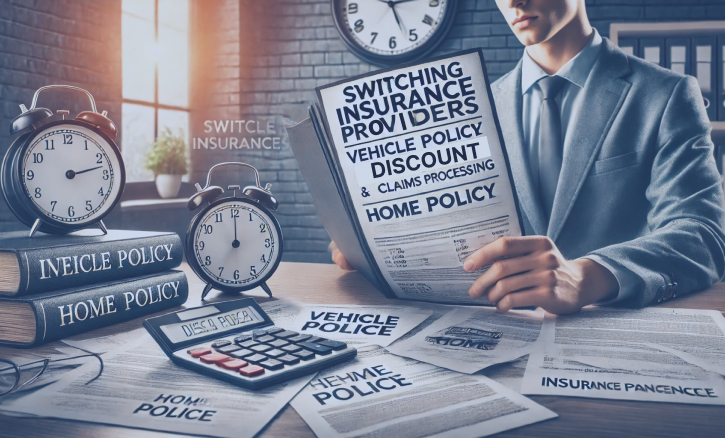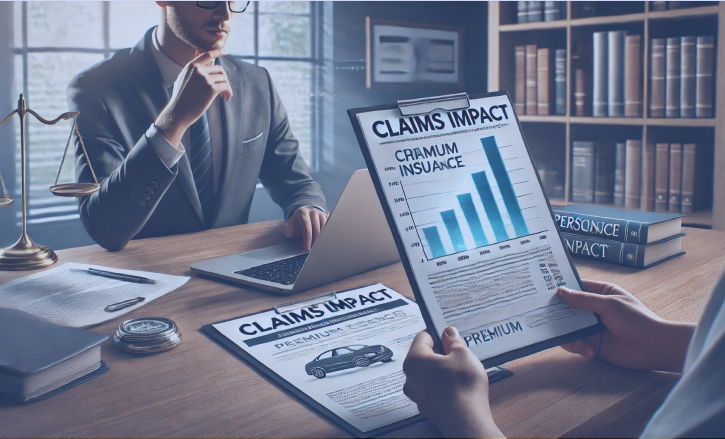
blog
November 17, 2024
Can I Switch My Car Insurance Company During a Personal Injury Case?

One of the most frequent questions we hear is, 'Can I switch my car insurance company while my personal injury case is ongoing?' The short answer is yes, you can. You have the flexibility to change your insurance provider at any time.
Even if you switch companies, your previous insurer is still obligated to handle your claim as long as your policy was active when the accident occurred.
People normally want to change their insurance company for 3 main reasons:
You are frustrated with poor communication or service from your insurance adjuster during a property damage claim.
You find better coverage or a more reputable claims handling process with another insurance company after consulting with a personal injury attorney.
You cancel your policy after an accident because you no longer own the vehicle or asset that was covered.
If you want to change your current insurance company because of these reasons or for any reason, yes you can change. But before switching there are some important things you have to keep in mind:-
Key Considerations When Switching Insurance Companies

There are a few things to think about when you do it. Here is what you need to consider-
Coverage on the Day of the Accident
You switched insurance companies the next day, your previous insurer still has to cover you for that accident because you had coverage on the date of the accident.
Challenges with Open Claims
Nevertheless, there are challenges to consider when seeking a new insurance company. If you have an open claim with your current provider, it might be challenging to find a new insurer. Therefore, it is crucial not to drop or cancel your current insurance company before you find and secure a new insurance company.
Gap in Coverage
One crucial point to keep in mind – Is there any gap in coverage between the two plans? If there is a gap, the new insurance company may see you as a higher risk during underwriting. Because this coverage gap means you have been uninsured for a period of time.
Let's say you are driving uninsured during this gap. What would happen? Definitely, you would be breaching the law as your car is not insured. If there is any accident, you will be liable for any damage to your vehicle and may face legal repercussions.
So how can you avoid this from happening? When you go shopping with these new insurance companies, make sure to check if their rates are reasonable. Also, ensure that the new coverage is similar to your current one. Most importantly, bind and secure the new policy before dropping the previous one.
This is how you can get a new insurance policy, and cancel your old one. Also, you will not be considered an uninsured one.
Switching Insurance Providers – How it Impacts Discounts and Claims Processing

Before binding a new policy, it is crucial to investigate thoroughly. If you combine your vehicle and home coverage with the same provider, you may qualify for discounts on both policies. However, if you discontinue your car coverage, you might lose these discounts and end up paying more for your home insurance.
As long as your policy was active at the time of the accident, switching insurance providers will not affect your claim. Your new insurance company will take responsibility for covering your claim, and your previous insurer will be relieved of any future obligations.
However, it is important to note that switching insurance companies may cause delays in the claims process. The new insurance company must first assess the accident and the current claim before accepting it. This process can take some time, potentially delaying the receipt of the funds you are entitled to.
Insurance Rates – What Happens When You Switch

Many individuals are concerned about whether their insurance premiums will increase or if their insurance company will retaliate against them for filing a claim. It is important to understand that insurance companies are regulated entities and must adhere to specific guidelines and laws. While it is possible for premiums to rise after a claim, this is typically based on risk assessment and claims history rather than any form of retaliation.
For example, if you are not at fault for an accident and have only filed one claim in five years, your rates may not increase because you are not considered a high-risk individual. In this case, the company may not raise your rates if you are already being charged market value.
However, if you have filed multiple claims in a short period, such as five claims in the past three years, or are found at fault for an accident, your insurer is more likely to raise your rates due to the higher risk. Accidents that result in points on your license also typically lead to higher premiums.
Consulting a Personal Injury Attorney
Even if you are not at fault for an accident, it is important to consult with an attorney to ensure you are fully and fairly protected. If you have been in an accident and are considering switching insurance companies, you are entitled to do so, but it is crucial to understand the implications. Be sure there are no gaps in coverage, and consider the potential impact on your claim.
If you have any questions or concerns regarding car accident claims or personal injury cases, contact Carter, a personal injury attorney. You can reach him at (813) 922-0228. He will guide you through the process, helping you avoid pitfalls and keep your insurance rates from skyrocketing.
Recent posts























